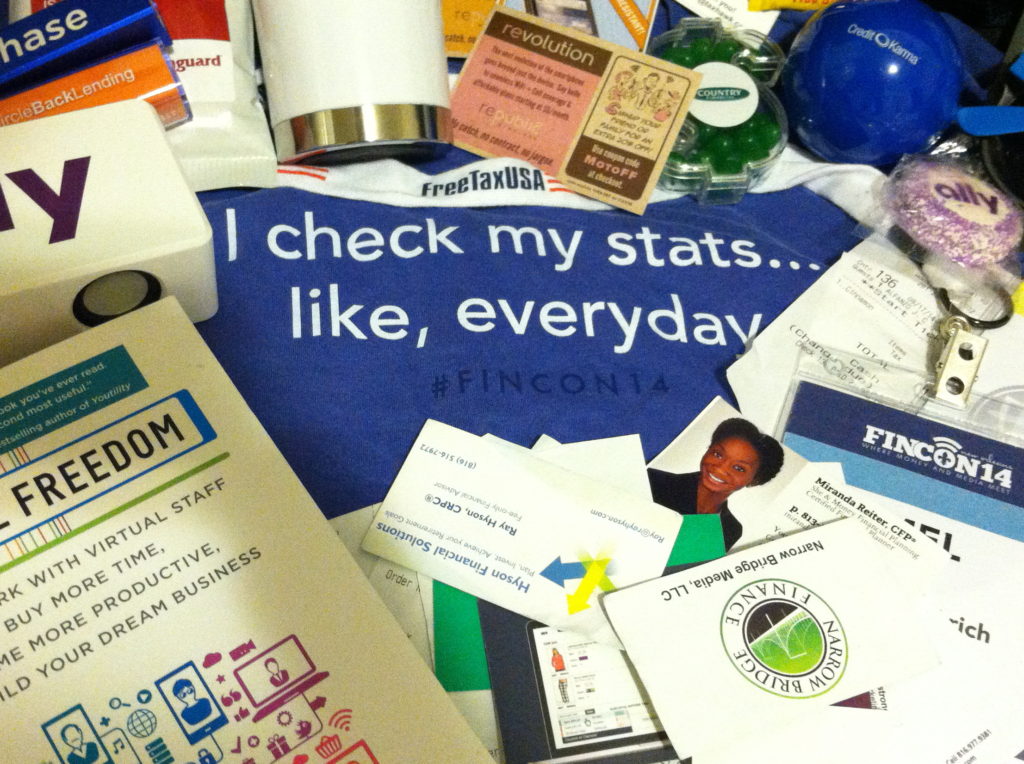Impact-Site-Verification: -1177662964

22.) I will seek out people who know more than I do about how to handle your money well and not be afraid to ask them how they got that way. | brokeGIRLrich
Welcome to the penultimate post of updates on my money manifesto. Shortly after I started this blog 10 years ago, I found J. Money’s millionaire club at Budgets Are Sexy and wrote this manifesto to try to succeed in joining it.
It’s been just under 10 years and I’ve spent this last year writing updates to check in on how things in my money (and a lil’ bit of life) manifesto have gone.
I have totally nailed some. Totally failed some. …and completely forgot a few of these points existed.
#22 is pretty interesting to me. I don’t know that I’ve done it quite as intended but it does spur a lot of thoughts.
I find studying how other people have achieved things I want to achieve to be one of the most useful ways to spend my time. A lot of times people may have advantages or skills that you just don’t, but if you listen to enough stories, you can pull enough tips from various sources to build your own raft to float on towards your goal.

Stage management tangent here – I was at the Broadway Stage Management Symposium a few years ago listening to the stage management team of some show talk about their careers and one woman mentioned that she went to a little school in the middle of nowhere. If you’re familiar with a lot of Broadway stage managers, there are like 4 schools that have a very strong presence among Broadway SMs, but not this lady. I was so impressed when she said she started collecting Playbills and checking where the SMs had worked regionally, the ‘lowest’ credits on their bios, made a spreadsheet and set her sights on interning at the top ones that showed up on her list repeatedly. And that was how she broke into the Broadway crowd, by landing one of those smaller regional internships – saving up like crazy during college so she could afford to go do it for a year – and making an excellent impression with her work ethic.
So. I am a total introvert and I get wildly anxious talking to people. However, when I think of the meaning behind this statement, I feel like this started ‘talking’ to people who know more than me by reading personal finance books and blogs.
Blogs are excellent for the more personal nitty gritty of folks lives. I know I started this one because in 2013 I was disappointed that no one seemed to be talking about the struggles of us itinerant weirdos who work in the arts. Even the struggles of freelancing as a whole were less talked about in 2013.
Blogs are a little less excellent because you have to think hard about who exactly are you getting advice from? I try to tell you what I’m doing and how it worked out here. So that sort of is what it is. As I’ve gotten older, I also write posts on things I know work for me.
I don’t hesitate to tell you what my investment strategy is and report on how it’s going but that doesn’t mean any of that advice is tailored to your needs. It is not.
When I needed to learn how investing principles worked, I did begin by reading through a lot of blogs but then I upgraded a bit to books. The thing about books (not self-published books) is that they have generally been fact checked (and I say generally because there are still some that are sketch – like Rich Dad, Poor Dad that have lots of really great ideas but should probably be followed with a large grain of salt).
But I’m a nerd who likes going to school and I research a fair amount and I am very suspicious of most sources until proven otherwise.
That being said, some basic money principle books were super helpful in the beginning. My favorite was Money Girl’s Smart Moves to Grow Rich, which is probably a little dated now. My totally off the cuff (opinion) tip is to check the author’s bio for someone who has a background in personal finance (preferably an educated one in this case – MBA, CPA, CPF, etc.) and then look for a cartoony or a cover with very vibrant colors. This book is probably written in very plain language.
And once that one makes sense, upgrade to some of the others. A classic book that rewired how I thought about money in more philosophical sense was The Wealthy Barber, which is also written like a story and super easy to read.
The final book in my initial trio of personal finance mental rewiring was Multiple Streams of Income by Robert G. Allen, which made me think about real ways to make more money for the first time. It’s sort of funny being almost 10 years down the road from that initial breakthrough, but the idea that I could make more than just my job salary was kind of a really big and difficult idea to grapple with at first.
None of this required speaking to another human being (directly anyway, though creeping on someone’s blog is always a tiny bit voyeuristic, isn’t it?).
Then I did start interacting a little more with the personal finance community. Comments on blog posts. Responding to comments on my own blog posts. Twitter.
Finally, the big leagues, I went to FinCon in 2014. It was a glorious time with money nerds. And this community is incredibly kind and helpful and welcoming. I had the best time. I listened to so many stories about how other people do money.

I think I still have that Ally bluetooth speaker somewhere.
And then I broke out of my little internet shell here because some friends found my blog and I quickly became the money person among my friends – the person it was safe to talk about money with. So I learned a lot more through those conversations.
Then I was invited to speak at the Broadway Stage Management Symposium, who put me on a panel with actual financial experts. It was terrifying and awesome.
It’s sort of funny when you’re just sitting at your laptop, writing blogs, and uploading them into the void that is the internet. You get a few lovely followers who comment kind of regularly but over time it’s easy to wonder if what your doing has any function for anyone other than you (though it’s totally fine to do it just for you – there have been periods of time where this blog has stayed alive because my monthly net worth updates are so valuable to me to staying on track financially. I could just do them privately but I don’t know if I would always have the motivation to do so without the accountability frameworks I built through this blog). But I sat on this panel with these brilliant experts, who even in just 30 minutes sitting together backstage taught me a ton about taxes and mortgages, and watched as they talked clear over the heads of their audience.
I spent most of the panel summarizing what they were saying and saying a lot of “so it sounds like you’re saying…. translated into terms that are way more understandable” and I could actively see the relief in many people’s faces as I did that. As I write all this, it feels a bit like a tangent, lol, but anyway, there is value in understanding personal finance things and sharing them in accessible ways. Even if you’re not the person who has every interest chart on the planet and the history of the stock market memorized.
Some of the main people I’ve spoken to about money as my understanding has grown that surprised me the most were my own family. I learned how to quietly recognize the people who seemed to be doing well and I started asking them their advice about money matters.
So, I think I stand by #22. I’m not saying run up to people and ask them how much they make or what their net worth is (though just read some blogs – a bunch of us are pretty open about that), but I’ve actually never experienced someone replying negatively when asked for their best personal finance tips.
If you’re interested in how the rest of the Money Manifesto is going, you can read about each point here:
- ) I will pay off all my debt.
- ) I will tithe 10%
- ) I will save at least 15%
- ) I will build up a $10,000 emergency fund.
- ) I will max out my IRA every year.
- ) I will put effort into learning how the stock market works better.
- ) Then I’ll invest in it.
- ) I’ll put effort into learning how REITS work.
- ) And then I’ll invest in it.
- ) I will own a home and it will not be a McMansion.
- ) I will pay for cars up front, in cash.
- ) I will write a book. About a little man named Jorge who lives in a jar in an antique shop. He has a mustache.
- ) I will keep on learning thrifty and frugal ways to live and then actually use them.
- ) I will make good decisions about how to spend my money, but I also won’t sacrifice all of the now for later.
- ) I will travel. A lot. All 7 continents someday.
- ) I will learn to side hustle. Especially to pay for #15.
- ) I will start a roller derby team.
- ) So I will always have good health insurance. And any other reasonable insurance to keep from bankrupting myself because of an accident or act of god or a drunken lunatic driving a car into the living room of my house.
- ) I will be careful about who I date and open with my finances with them when it gets serious – so that we can come up with good money plans for our future together.
- ) I will not panic when the stock market and housing value and any of my investments fluctuate over time, because they’re going to do that. And I’m just going to ride it out.
- ) I will remember it’s better to save in advance rather than charge it.




I admire your proactive approach to financial literacy! Seeking out those with more knowledge and experience is a fantastic way to learn and grow. It’s inspiring to see your willingness to ask questions and learn from others’ success. Keep up the great work, and I’m sure your dedication will lead you to financial well-being!
Thanks,
John smith